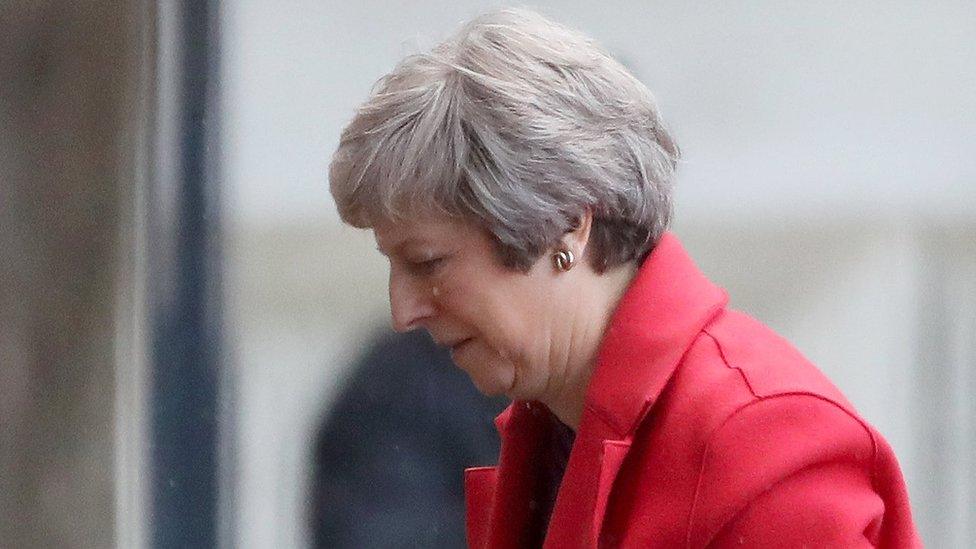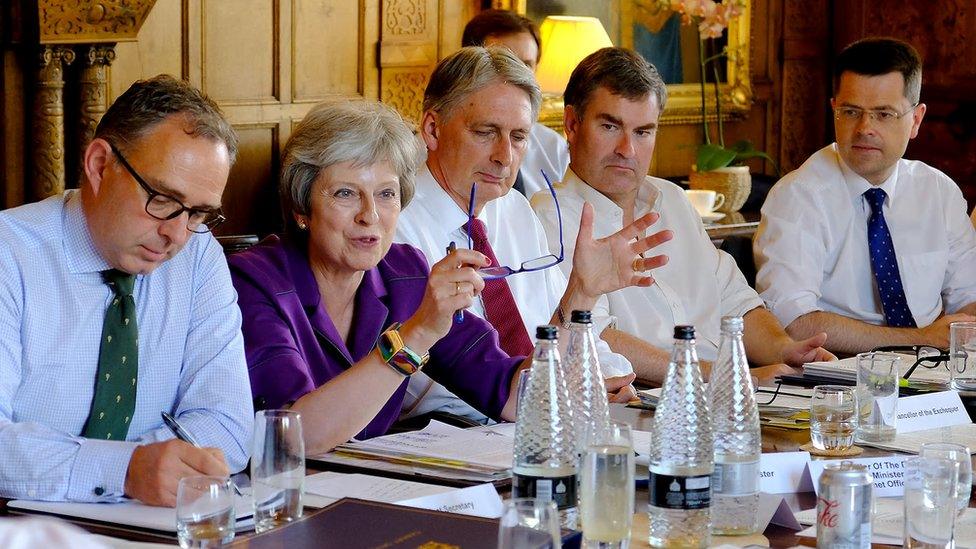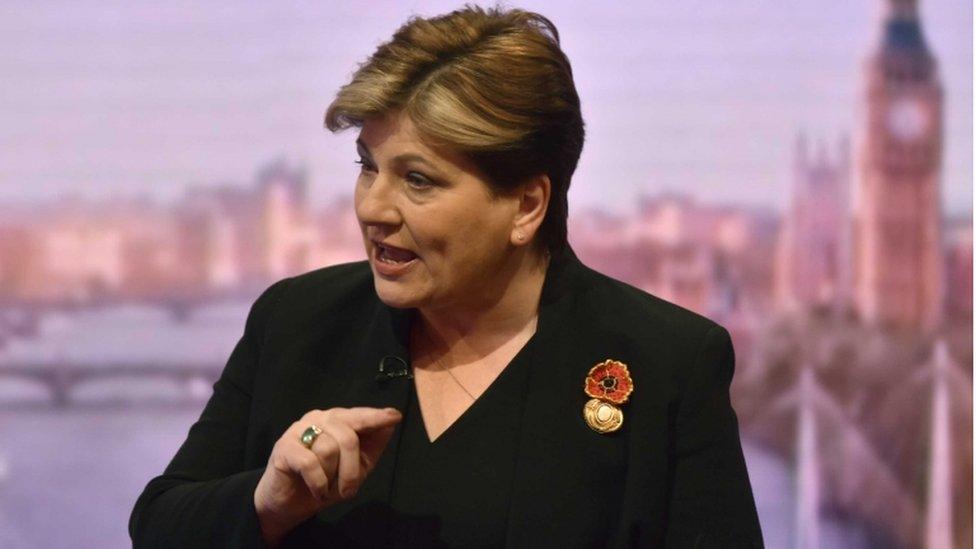Brexit: Danger for May on all sides as Parliament exerts power
- Published

On our long stumbling journey towards Brexit, there are occasional moments of clarity which provide a flavour of what to expect next.
The resignation of Jo Johnson will be remembered as the moment that showed Downing Street faces mortal threats from all sides.
It had long been assumed that a hardcore band of Brexiteers posed the greatest challenge to Theresa May's plans.
But the resignation of an unrepentant Remainer - pledging to oppose both no deal and her deal - shows that pro-Europeans may have parliamentary muscle too.
With Tory Remainers, Tory Brexiteers and the Labour Party finding common cause in some, but not all, areas, the prime minister could simply find that Parliament rejects the two most likely options she will put before MPs. They are: a pre-Christmas deal with the EU, or an admission that a deal is not possible.
Sir Keir Starmer, the shadow Brexit secretary, told the Today programme on Monday that in this scenario Parliament would take over. Downing Street has a ready response to that idea: only the government has executive powers to negotiate, so Parliament has limited influence.
Parliamentary possibilities
But parliamentarians on all sides have been holding talks among themselves and with Commons officials over the last year, working out just what Parliament could do in the event that MPs reject every option on the table: deal and no deal.
John Bercow, the speaker, has been consulted by senior parliamentarians. He has been told that around this time in the Brexit calendar he may well find that the executive is so "enfeebled" that Parliament may have to take over.
I am told that the speaker has listened with great care to MPs but has been careful not to reveal his hand.
Senior Commons officials have suggested that unless Parliament is able to amend legislation then the ability of MPs to shape Brexit will be limited. This explains why the government is so keen that its "meaningful" vote should be held on a non-amendable, take-it-or-leave-it basis.
Senior pro-European MPs are hoping that the speaker will break with convention and allow MPs to hold votes with bite. Tory and Labour MPs have been looking at the way in which the Labour frontbench has successfully forced the government's hand in recent months - requiring ministers to publish government documents - through a parliamentary device which petitions the Queen.
Brexiteers in cabinet view the speaker with great suspicion and believe he is biding his time to help Remainers in the Commons. It should not be forgotten, however, that the speaker's diminishing set of friends on the Tory side include Brexit supporters. They also have his ear.
The greatest hopes among MPs hoping that Parliament may take over rest not in the arcane world of Commons rules and procedures, but in the simple belief that no government can function without the support of Parliament.
Echoes of Churchill?
Many MPs have cast aside Erskine May, the bible of Parliamentary procedure, and have instead chosen to look to history for inspiration. Their book of choice is Nicholas Shakespeare's Six Minutes in May which describes how Winston Churchill replaced Neville Chamberlain in May 1940 after the debacle of the Norway campaign.
A vote on the most neutral motion of all - whether to adjourn the Commons - was held. Chamberlain won. But the catastrophic loss of support on his benches and elsewhere spelled the end. The Six Minutes, as Jim Naughtie wrote in the New Statesman, refers to the length of the Commons voting division measured by an egg timer on the clerks' table.
In May 1940 it was soon clear what should happen. The person from the largest party who could command the greatest support across Parliament - even though he had been at the heart of planning the Norway operation - succeeded Chamberlain. Churchill became prime minister.
Even though Boris Johnson likes to think of himself as a 21st century Churchill there is no such figure on the horizon. We can expect lots more fog before another moment of clarity arrives.
- Published12 November 2018

- Published11 November 2018
